Jane Eyre
 for some thematic elements including a nude image and brief violent content.
for some thematic elements including a nude image and brief violent content.
Reviewed by: Angela Bowman
CONTRIBUTOR
| Moral Rating: | Better than Average |
| Moviemaking Quality: |
|
| Primary Audience: | Teens Adults |
| Genre: | Romance Drama Adaptation |
| Length: | 2 hr. 1 min. |
| Year of Release: | 2011 |
| USA Release: |
March 11, 2011 (select theaters) DVD: August 16, 2011 |



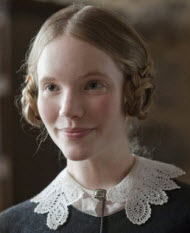

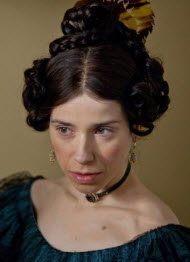
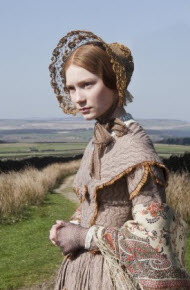
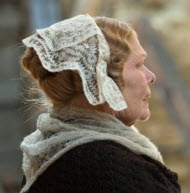
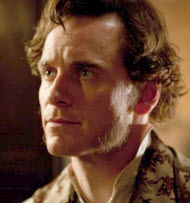
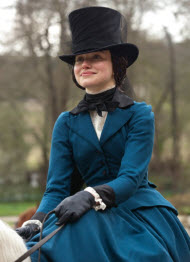
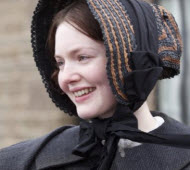

orphan girl
TRUE LOVE—What is true love and how do you know when you have found it? Answer
How do I know what is right from wrong? Answer
How can I decide whether a particular activity—such as smoking, gambling, etc.—is wrong? Answer
sin in the Bible
Are we living in a moral Stone Age? Answer
forgiveness of sin
Jane frequently prays and calls on God to assist her.
How can we know there’s a God? Answer
What if the cosmos is all that there is? Answer
If God made everything, who made God? Answer
Is Jesus Christ God? Answer
Is there an actual place called “Hell”? Answer
Why was Hell made? Answer
Is there anyone in Hell today? Answer
Will there literally be a burning fire in Hell? Answer
What should you be willing to do to stay out of Hell? Answer
How can a God of love send anybody to Hell? Answer
What if I don’t believe in Hell? Answer
THE GOOD NEWS—How to be saved from Hell. Answer
Are you good enough to get to Heaven? Answer
“Jane Eyre” is based on a novel (Wikipedia)
| Featuring |
|---|
|
Michael Fassbender—Edward Rochester Mia Wasikowska—Jane Eyre Jamie Bell—St. John Rivers Imogen Poots—Blanche Ingram Judi Dench—Mrs. Fairfax Sally Hawkins—Mrs. Reed See all » |
| Director |
|
Cary Fukunaga |
| Producer |
|
Christine Langan—executive producer See all » |
| Distributor |
“What is your tale of woe?” Orphaned? Abused? Abandoned by your family? Unloved? Jane Eyre may claim not to have one, but you may think otherwise; watching her life unfold before your eyes, through tragedy, heartache and dashed hopes. Yet, Charlotte Brontë’s classic tale is not about a life of misery, it is instead about the spirit of determination, perseverance and love of one Jane Eyre. In fact, the admiration for this character far overshadows the pity one might have for her, as she inspires us with her abundance of kindness, compassion and forgiveness, balanced with a strength and resilience of enviable measure.
Surviving physical and emotional abuse by her relatives and later the administration of the equally horrid Lowood school, Jane escapes when she is offered a position as governess to a young French girl at Thornfield Hall, after advertising her services. Mystery ensues as strange events unfold and the dark and moody master of the house, Mr. Rochester, is revealed while the most unlikely and unusual of love stories is found.
Not unfamiliar with the screen, “Jane Eyre” has been brought to life numerous times, and, while this version may not surpass the best, it is certainly to be held amongst them. Mia Wasikowska (“Alice In Wonderland”) is a tremendous Jane (as an actress would have to be to embody such a character), supported by the finest of actors, including Judi Dench as Mrs. Fairfax and Michael Fassbender as Mr. Rochester. Some may also recognize Tamzin Merchant of the 2005 version of “Pride and Prejudice.”
The character of Jane Eyre is most intriguing and exemplary. While she is outwardly mostly reserved and submissive, recognizing her place in that time in both rank and sex, she is not afraid to stand up for herself when she feels tremendous injustice or disrespect; and her inward strength, intelligence and passion for life speaks loudly, even when her voice does not.
1 Corinthians 7:17 says, “Nevertheless, each person should live as a believer in whatever situation the Lord has assigned to them, just as God has called them” (NIV).
Jane never uses her misfortune as an excuse to do wrong, neither does she count herself misfortunate (displaying content in every situation, Philippians 4:12-13), but rather it seems to make her more loving and compassionate towards others and forgiving in the most difficult of circumstances. (Matthew 5:44 — “But I tell you, love your enemies and pray for those who persecute you,” and Colossians 3:13 — “Bear with each other and forgive one another, if any of you has a grievance against someone. Forgive as the Lord forgave you.”)
While Jesus is never directly mentioned in the film, Christian living and influence of the time is apparent in the mealtime prayers and moral standards. The most difficult scenes for me to watch were the ones in which she became a resident of Lowood, a boarding school for girls which strictly condemned the smallest imperfection as sin, in cruel and harsh ways, without the love we are supposed to have. I can’t imagine the kind of damage this has done in real life to countless people (including the author, who drew from her own experience) and how it must pain and disappoint God to be so misrepresented, particularly when the victims are children. Thankfully, our ray of light during this time is Jane’s only friend Helen, who encourages Jane, telling her in the end that she is happily going to God.
In my mind, “Jane Eyre” is the story of faith, hope and, ultimately, a quest for love, causing it to be a sometimes haunting, yet beautiful interpretation of 1 Corinthians 13.
“And now these three remain: faith, hope and love. But the greatest of these is love” 1 Cor. 4:13.
While possible offensive content is minor, parents may want to consider that some of the serious themes (including death, the subject of which being somewhat prevalent) may be too advanced for very young audiences.
Violence: A child is hit and blood trickles down her forehead. A bloody wound (the aftermath of an attack) is shown.
Sexual Content: A classical picture of a nude woman and child is shown twice, the second time up close and focused on the woman. A married man asks Jane to live as his wife, however she declines on moral grounds and respect for herself. There are multiple scenes of kissing, some lingering and passionate, yet modest.
Language: one instance of “what the devil”
Hell, as a place, is briefly discussed in attempts to frighten young Jane into submission. A story is told about a ghost who “sucks your blood.”
Violence: Minor / Profanity: None / Sex/Nudity: Mild
See list of Relevant Issues—questions-and-answers.


I liked how the film presented Jane’s background as flashbacks rather than in chronological order from the book (which I had read previously as a teenager). This was better than the 1940s version featuring Orson Welles as Mr. Rochester and Joan Fontaine as Jane Eyre (but still a good film, nonetheless).
My only problem was that a couple of kissing scenes were a little too intense for my tastes, but other than that, everything is awesome.
It’s a great movie for teens and adults.
Moral rating: Better than Average / Moviemaking quality: 4
Moral rating: Better than Average / Moviemaking quality: 5
Moral rating: Good / Moviemaking quality: 4½
Moral rating: Average / Moviemaking quality: 5
Moral rating: Excellent! / Moviemaking quality: 5
If you’re looking for a well-acted, creepy Jane Austen-ish type story, it would be a good rent. I’m not really sure why it was rated PG-13; the only possible reasons are lots of emotional turmoil and a shot of a nude painting.
Moral rating: Better than Average / Moviemaking quality: 4½
For instance, Adele’s backstory is merely hinted at, and Mr. Rochester’s climactic scene with Jane is nowhere near as dramatic as in the 1983 version. Plus, I found Ms. W.’s Australian accent very distracting (Jane Eyre is English, according to the book). I recommend this movie only for people who know the story very well; otherwise, you’ll probably think that the original novel is boring and thereby close yourself off to some of the greatest literature ever written. This version should have been rated PG.
Moral rating: Good / Moviemaking quality: 4
As for possible offensive content: There was a painting of a naked woman which was shown twice but it wasn’t very detailed. But that is all that I can recall which may cause offence. Personally, I do not think that this film is suited to anyone below the age of 12, due to a knife wound which was quite gruesome and the horror of what Jane goes through when she is young, for example; the death of her friend, when she is hit and her head bleeds etc.
But I do not see any reason why a Christian above this age should not go and see this film and I would highly recommend it!
Moral rating: Good / Moviemaking quality: 4



While some may complain about some of the details left out due to time restraints, I believe that on the whole this film captured to the spirit of the novel wonderfully. In addition, it was a very clean film with high moral standards.
My Ratings: Moral rating: Excellent! / Moviemaking quality: 5